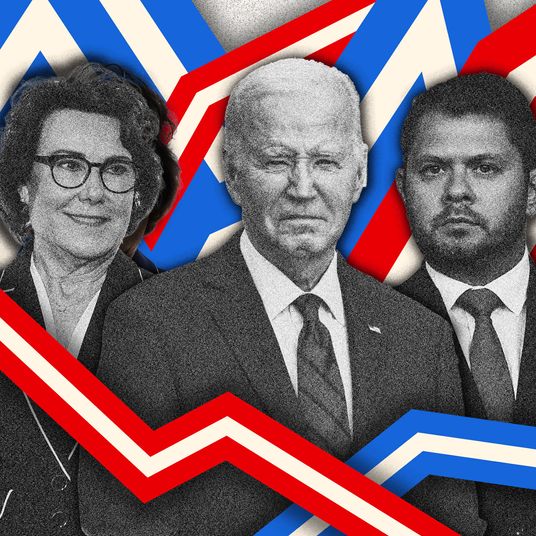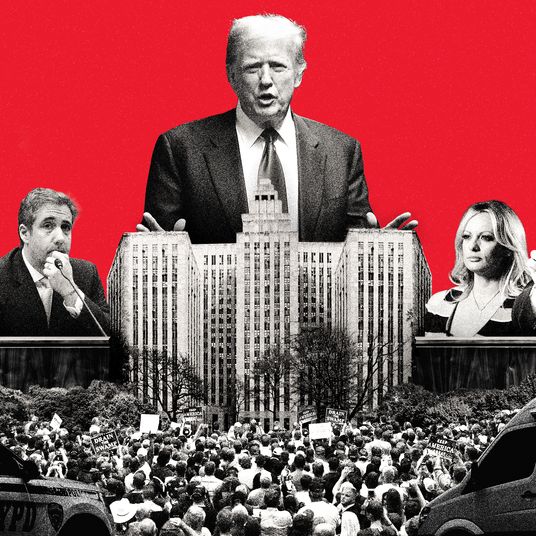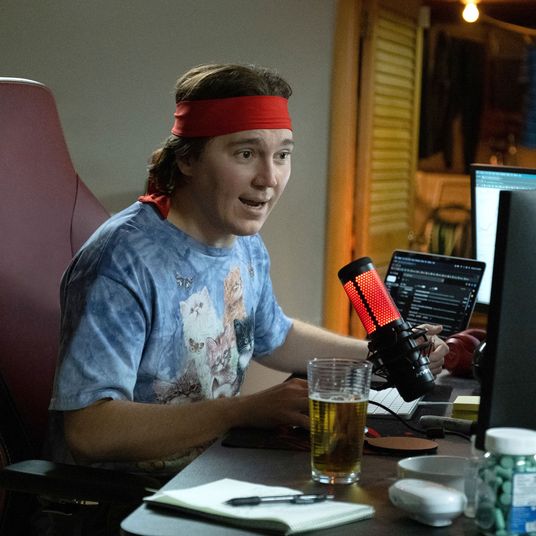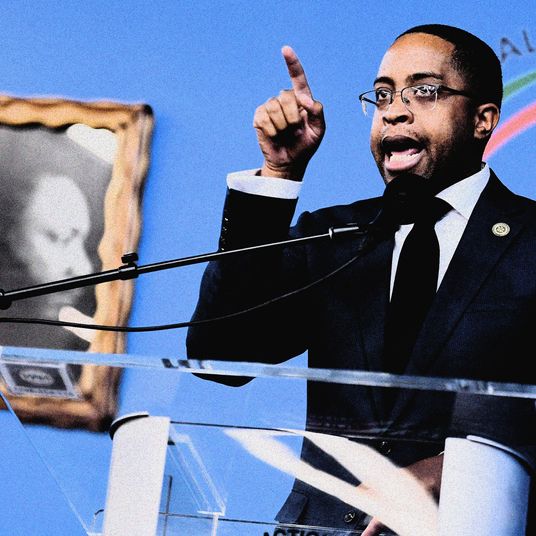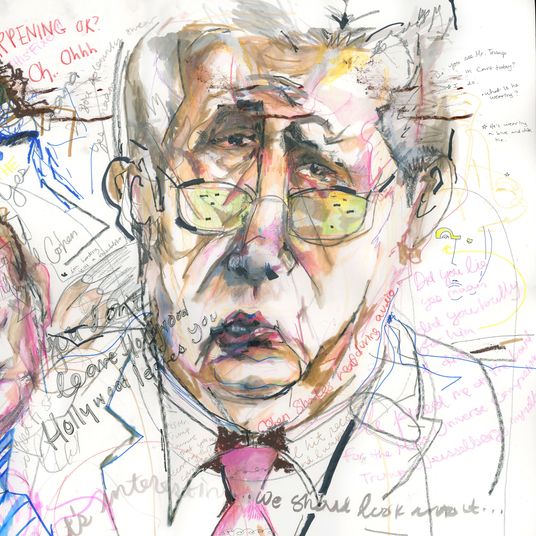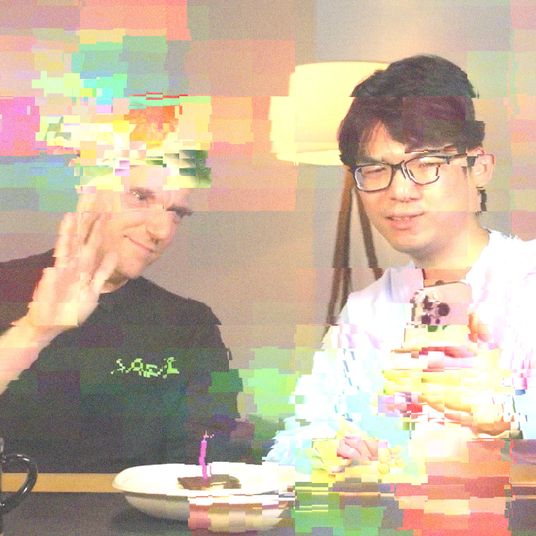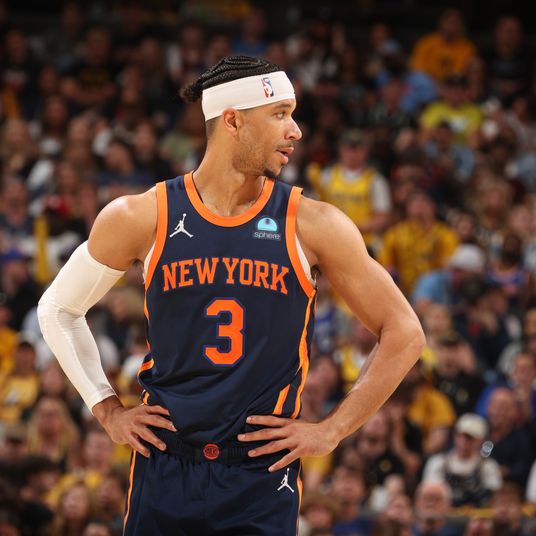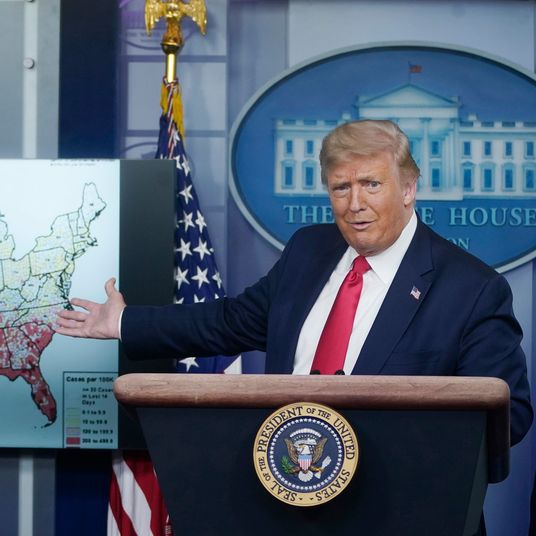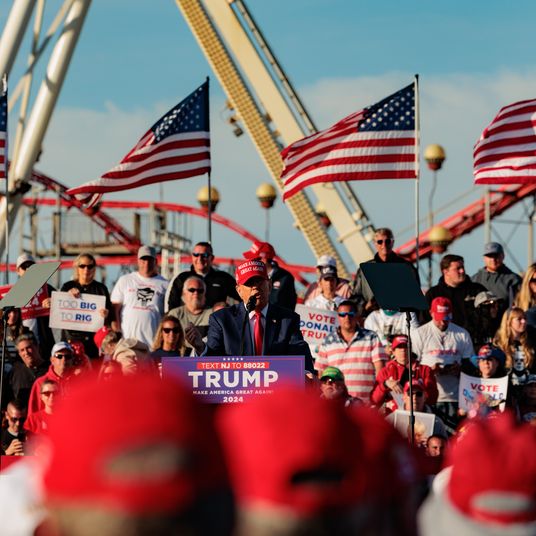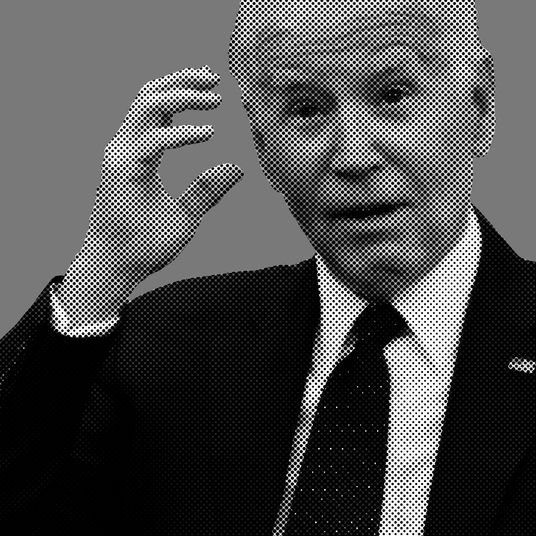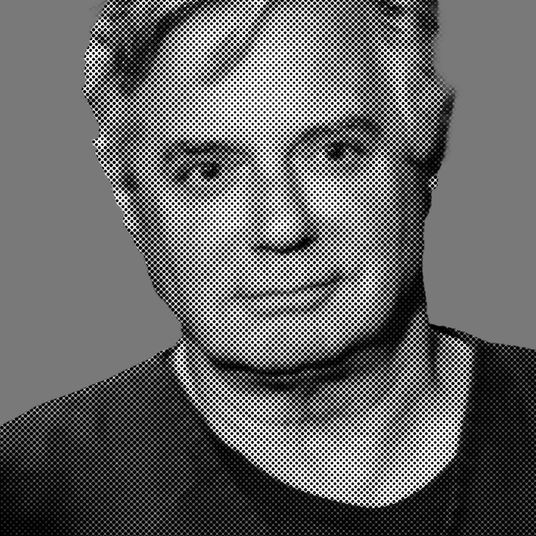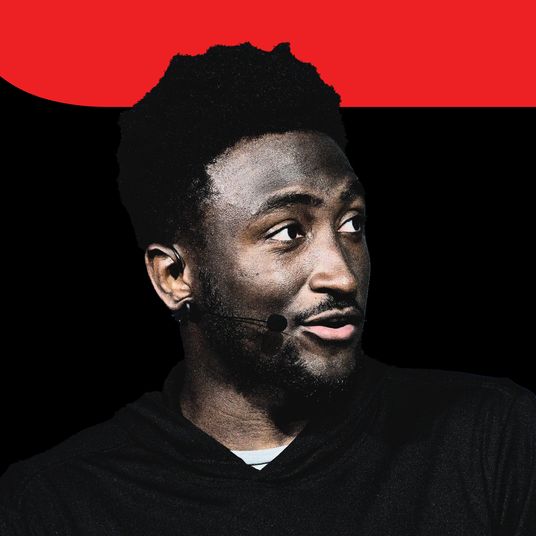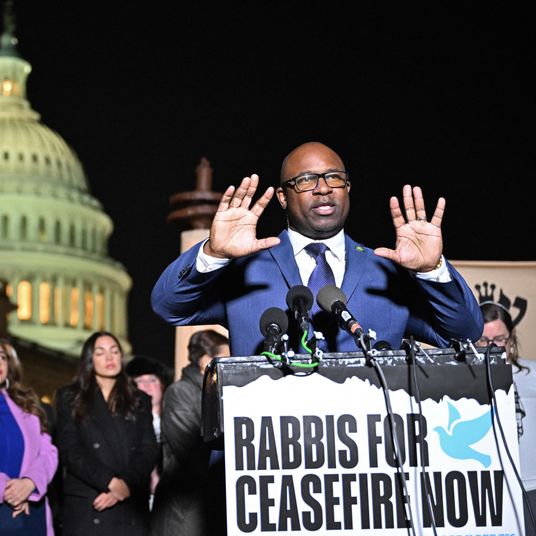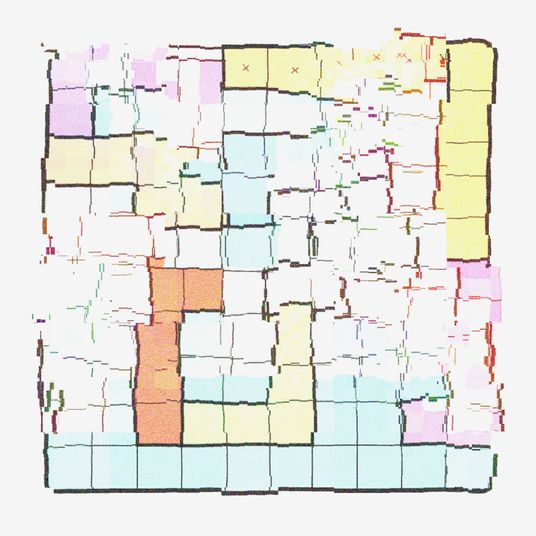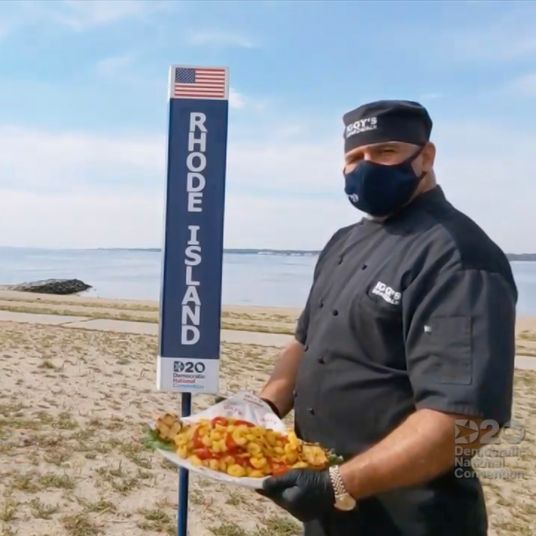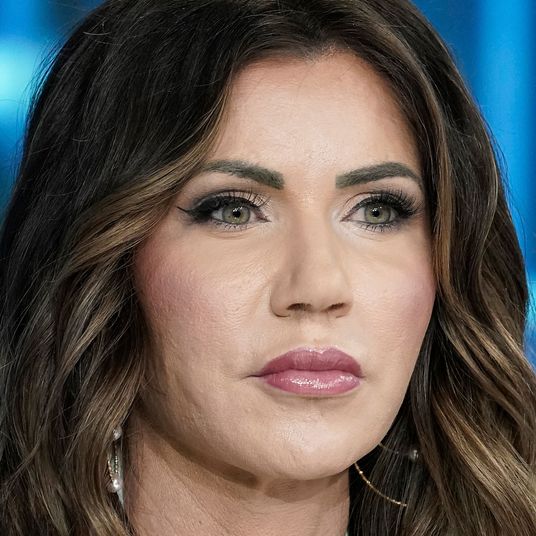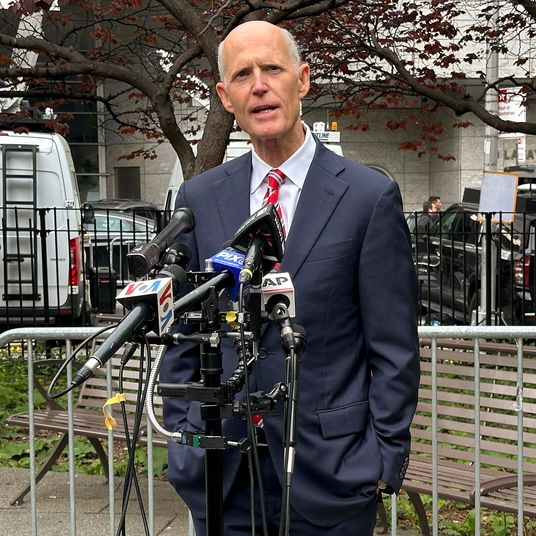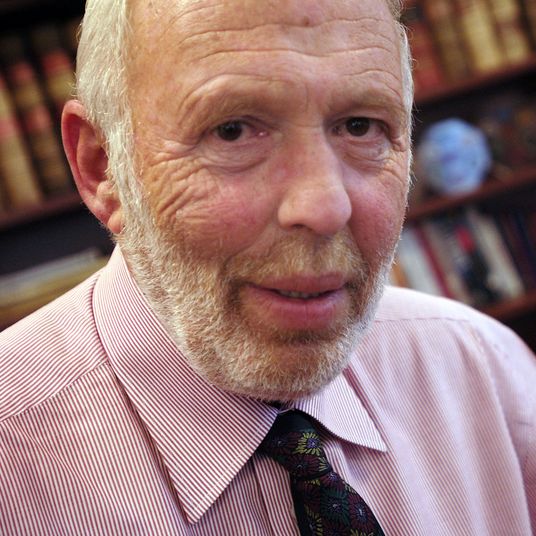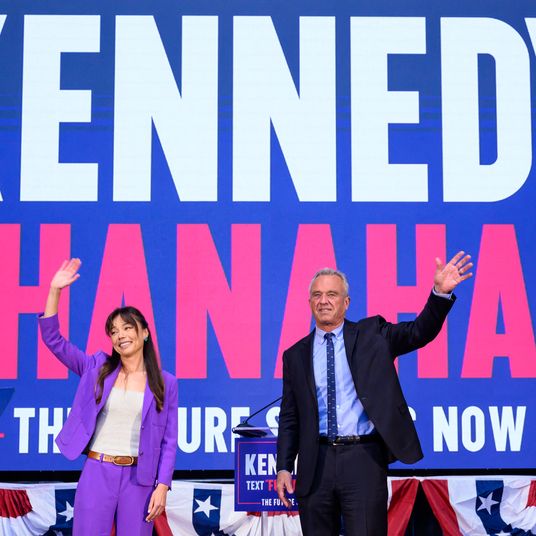
“We’re in our feelings, browsing people’s memorials on Twitter and talking to Mike’s family,” said Henry Williams of his schedule on Sunday, the day after former Alaska senator Mike Gravel died from myeloma at the age of 91. On Williams’s T-shirt is a phrase inspired by his unlikely champion: Send Henry Kissinger to the Hague. “This was his line.”
Two years ago, Williams, a Columbia University freshman, and his friend David Oks, a high-school senior, convinced Gravel, an antiwar iconoclast last seen in national politics in a brief 2008 presidential run, to lend them his Twitter handle as part of a long-shot campaign to post their way to the Democratic primary by touting progressive ideas and being mean to other candidates online: “Pete Buttigieg is what you get when Patrick Bateman decides to pursue politics instead of banking,” one tweet reads. The pair, formerly known as the Gravel teens (they are both 20 now), took a break from school to try and secure enough donors to get their candidate onto the debate stage to broadcast progressive ideas. Though they did not achieve their initial goal, they expanded their vision to build the Gravel Institute, promoting some of the ideas of their testy leftist, like establishing direct democracy in America and “ending imperial wars.”
From the beginning of the experiment, there was an unexpected bond between Gravel and his students of history. (Williams’s Zoom background is the city of Chongqing, the “Chicago of central China,” because “David and I are fascinated by disgraced former party boss Bo Xilai.”) But like his young acolytes, Gravel had a taste for theatrics in addition to his unshakable sense of morality in politics. In 1971, defying a court injunction to stop the release of the Pentagon Papers, Gravel read its passages for three hours in a Senate hearing, effectively declassifying the report that showed the government lied to the American people as the Johnson administration escalated the war in Vietnam. In 2008, while condemning the Iraq War, he promoted his presidential run by recording a budget vignette with Lady Gaga and a cryptic video of himself throwing a rock into a river. (He would also make fun of the Democratic field in a primary debate in South Carolina, diagnosing Joe Biden with a “certain arrogance” for his policies in the Middle East.) In a sense, a new-media stunt to frustrate the Democratic National Committee and promote a radical vision of change was a perfect coda to his life in public.
To better understand the late senator and critic of America’s place in the world, Intelligencer spoke with Williams and Oks to discuss their relationship with their mentor and his distinctive career. “You don’t get people like Mike very often,” said Williams. “And you get them in power almost never. Once in a generation, you do.”
Hi Henry, hi David. How are you guys feeling today?
Henry Williams: The tough thing is that nobody was as ready or as brave as Mike in the end — we were the ones who weren’t ready. He knew he had such a long life and he really was so fearless and open-eyed and unflinching, he wasn’t at any point afraid. He was drifting in and out the last few weeks, but in the moments we got to speak with him, he was telling us, “It might be the end for me physically, but not for the things I fought for, not for you, not for everyone else.”
What did you talk about the last time you spoke with him?
HW: We spoke about five or six days ago, he had a moment when he was feeling better. I lost both my grandfathers without ever really having a relationship with them, so I wanted to tell him that he was like a surrogate grandfather to me. We wanted to let him know how long a shadow he cast and that he has an opportunity to have even more of an impact in his legacy than he did in life. There’s so many people, us most of all, who have been shaped by his influence.
How would you describe Senator Gravel’s legacy?
David Oks: Just on a personal level, Mike was the most courageous, incredible, and really generous person that I’ve ever met. I told him this last time I spoke to him, but he was the greatest person. He had a great soul, he was such like a magnanimous figure. The things that he did, the courage that he had, was kind of unspeakable.
He was already confident of his status in history because of the Pentagon Papers and what he had done in Alaska. There was no need to legacy-build for him, his place in history was already confirmed. We only knew him in the last few years of his life, but he was really happy with the campaign and the success of the institute. It was kind of like a cherry on top.
How would you describe his humor? The clip from the 2008 presidential primary debate in which he tears into his fellow candidates on the nuclear option is about as sharp as a politician can get.
HW: He has the kind of radical gallows humor you develop being a bit of a political gadfly. A big part of that is his anti-authoritarian core, where the system is itself at fault. It’s not about getting good people in the right places, but that there is something very deep and fundamentally wrong and the solution is deeply structural. Mike’s humor was that he didn’t respect any of the sacred cows or the taboos.
I know he cared deeply about the idea of direct democracy — where people vote directly to choose policies — and wanted to push that in the campaign. Often times, you guys went in a different direction. Did you ever butt heads?
DO: There were points where he told us to rein in the language during the campaign.
HW: I was surprised by how much Mike saw the campaign as a project David and I owned, but one that evinced his spirit and fundamental values. Where we clashed was in moments where he felt the spirit of it wasn’t there, or if we got too mean-spirited. And he was right most of the time when we disagreed over this stuff that we had become drawn into the internet or the discourse or whatever. He’d say, “It’s not about that, that’s not what matters.”
Listen, he grew up in the Depression, he grew up with no TV, he moved to Alaska before it was a state. So his reference frame is so fundamentally different that he doesn’t even try to say, “I know what the internet is and what it’s like.” It didn’t need to be his language, it didn’t need to be exactly the way he talked, but it needed to be focused on the same mission and it needed to evince that spirit.
When you didn’t make the debates for the 2020 primary, did you consider that a failure? Did Senator Gravel?
DO: We had known by the time Bill de Blasio entered that even though we would hit the donor threshold, it was unlikely we’d hit the required polling numbers. So we expected at least a month out we wouldn’t be able to be included in the debate itself. But we never saw it as a defeat; if anything, we saw it as a vindication. Just through the strength of Mike and his message we were able to get people behind the campaign.
HW: We were more disappointed. Mike expected nothing coming in, he just said “Let’s give it a shot.” He loved having a platform and just being in the tussle again. He told us, “Don’t expect them to let you up there. Don’t expect them to let me onstage, they know what I said last time. They don’t have any reason to make it easy for us.” He was more cynical in that way than us.
It seems like the back-and-forth between you was pretty productive. But looking back, would you have done anything differently?
HW: We would have taken it very seriously from the beginning. There was a big middle ground between when we spitballed about the idea for a couple weeks and when we got closer to the donor threshold and were thinking we might actually make it. At that point, we started staffing up. We left school, we really went all in. That’s what allowed us to close the gap. In the last two weeks of our fundraising we got 25,000 of our 65,000 donors, so it came in all at the end. And it’s because we got serious and brought on talented people. We didn’t do that earlier because we didn’t realize it could go all the way.
DO: I also wish we started maybe two months earlier because candidates needed to qualify with the one percent polling threshold. There were a lot of candidates who had been in the race for a long time and could get there more easily. I wish we started earlier and we could have done slightly better in polling to get into the debate. We had to beg polling companies to include us.
Did you get a sense of his opinion on the Biden administration? His critique of American politics certainly applies: A broken Senate is obstructing progress and foreign policy is in many ways the status quo.
HW: People call us shit-lib electoralists and say we believe too much in the Democratic Party. Let me tell you, Mike Gravel does not believe in the Democratic Party. Neither do we. But Mike came to believe that it was all about structural problems in American democracy. So with Biden, it was such a foregone conclusion. I remember that the first thing he said about it was that he knew Joe and that he was such a nice guy and so personable and such a back-slapper and it was for that exact reason that he’d be a pile of crap basically. He was friends with all the worst people.
I mean the system has worked for Joe Biden and Joe Biden is a man of that system. And Mike stopped believing in it decades ago. Yes, he definitely wanted Biden over Trump and he believed in harm reduction. But I don’t think he had any illusions. And maybe his best hope is that there’s an animated and excited left that has some leverage over people like Biden and Majority Leader Schumer.
I know you’ve taken the year off from college to run the Gravel Institute, but are you guys poli-sci majors?
DO: Neither of us do poli-sci, thank God. I’ve become a bitter enemy of the poli-sci kids.
HW: David studies history and I study mathematics and philosophy.
What’s with the poli-sci kids at Oxford, David?
HW: It’s learning about the art of the possible, so there’s a certain kind of person. This is also advice from Mike, who is very correct on this topic: They’re people who want to be creatures of the system and they learn that the system works. Implicitly they learn that the system is good and should be defended and justified.
DO: You learn the orthodoxy of things, and Mike was, if nothing else, just like the most unorthodox guy in the most brilliant way.
HW: He did say to complete your education but also to develop your mind, like that’s how he sees it. He’s an old-school, classical education kind of guy. So am I a little bit.
This interview has been edited and condensed for clarity.






